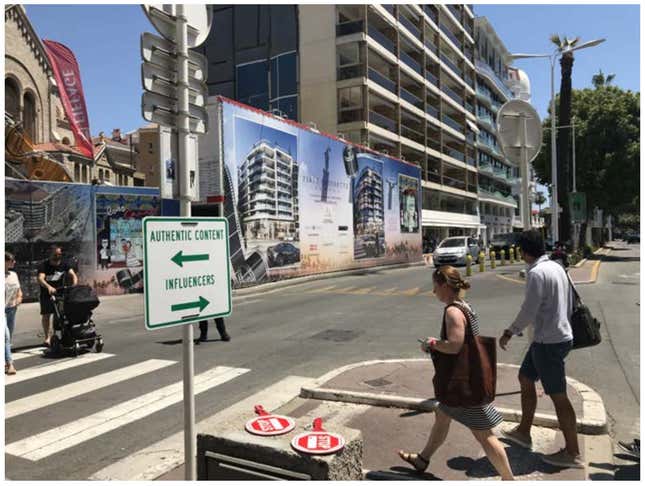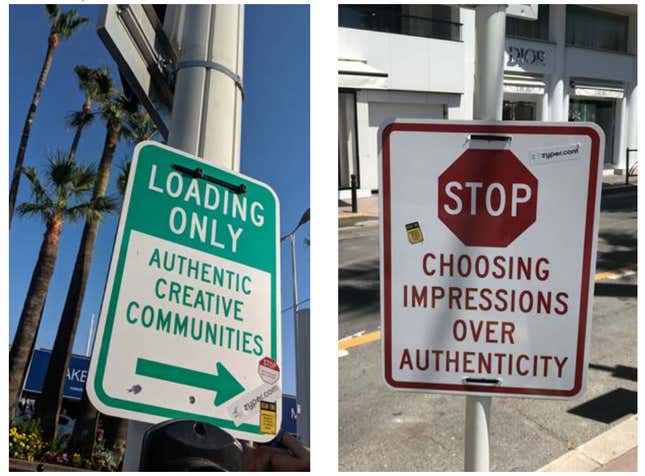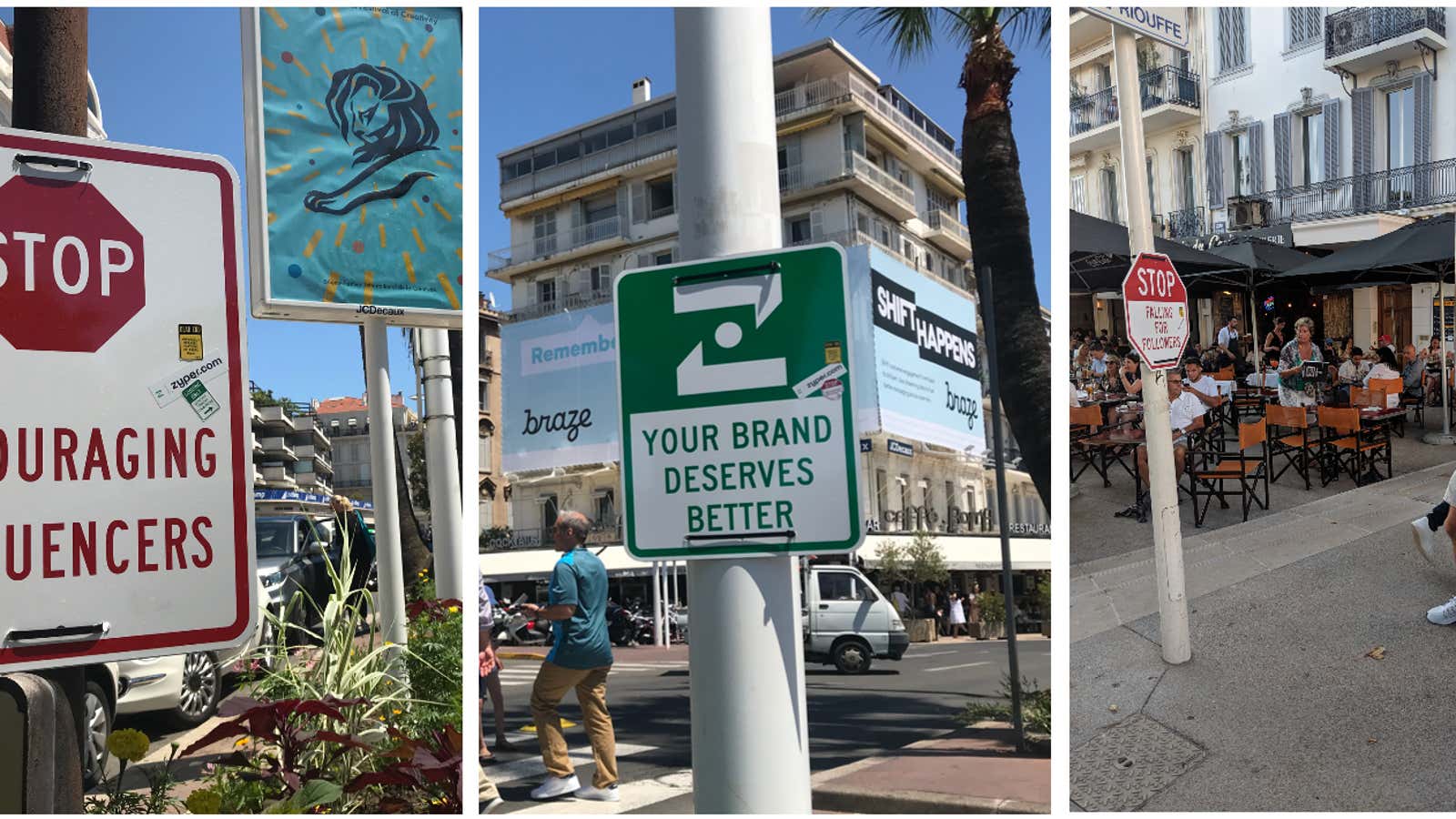“STOP Encouraging Influencers,” and “DEAD END – Awkwardly Branded Captions Up Ahead #SPON,” declare street signs sprinkled around the world’s biggest marketing festival, Cannes Lions, which is held in June in France.
The signs are trying to point out to the world’s top marketers that influencers, who are supposed to lend brands an air of authenticity, are actually far from authentic.
To be sure, there are significant problems with influencer authenticity. It has become a commodity in itself, commissioned by the world’s biggest corporations. Influencers regularly fail to uphold it when they buy fake followers or fail to disclose that their work is sponsored, or just use their accounts to incessantly hawk products and little else.

But, you could say the street signs themselves are a bit inauthentic: they are a publicity stunt. Zyper, the company that is behind the campaign, enables a different but related form of social media marketing, pairing brands with their most loyal customers, super-fans, to promote the brands’ products in exchange for rewards.
This type of marketing, which relies on what’s known as “user-generated content,” is where some brands, like makeup maker Glossier, luggage company Away, or athleisure producer Outdoor Voices. It’s already quite common, and where some observers say influencer marketing is headed. Where paid influencers can lose their cachet of authenticity, and with it their audience’s trust, regular users might be simply recommending a product they enjoy.

“I think eventually, hopefully, we’ll get to a model that’s a little bit more organic,” Jonah Berger, a marketing professor at the Wharton School at the University of Pennsylvania, recently told Quartz. “Rather than paying people to talk about something, we’ll give out samples of things, allow people to experience those things and talk about them if they like them.”
